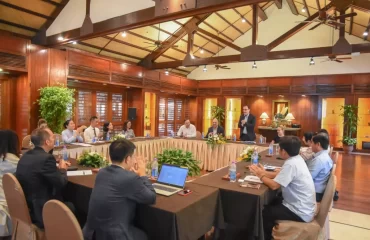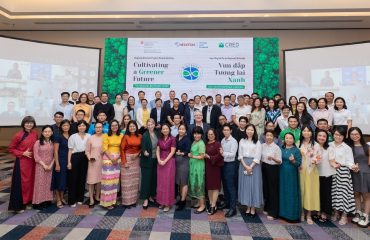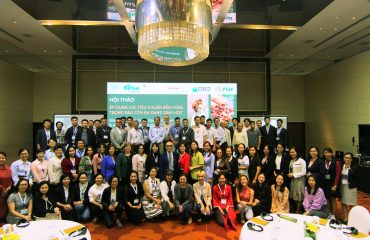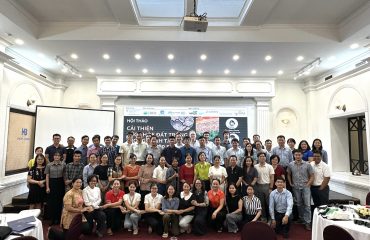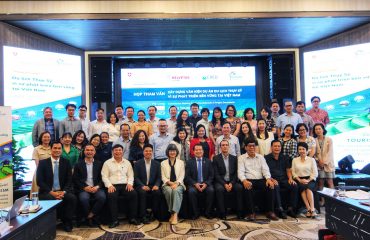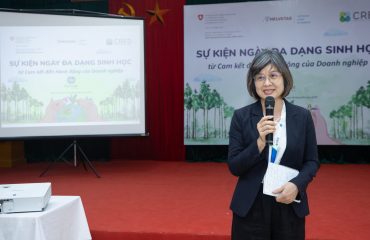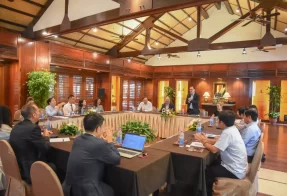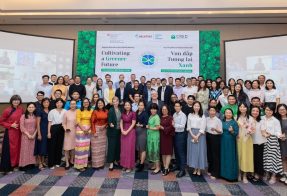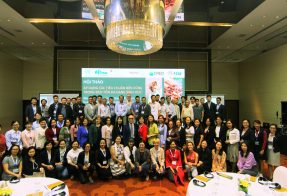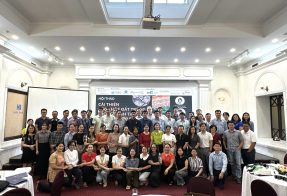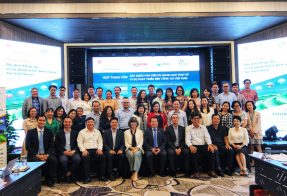On April 22, a workshop to introduce pilot activities to develop a sustainable cinnamon material area was held at the headquarters of the Forest Protection Department of Van Yen district, Yen Bai province. This is an activity within the framework of a sub-project to promote sustainable cinnamon industry development and apply an environmental impact assessment tool in measuring carbon emissions from the cassia supply chain. The workshop is part of a cooperation project between Nedspice Group Company Limited, IDH – The Sustainable Trade Initiative and BioTrade SECO project – a project implemented by the Center for Rural Economy Development (CRED) and is expected to be implemented in 2 years 2022-2023.
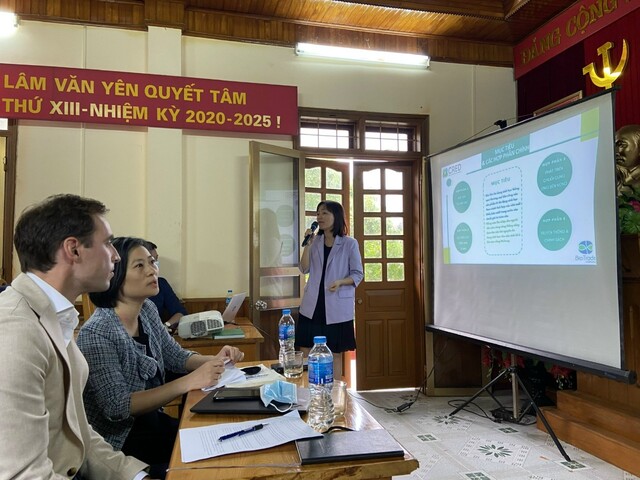
The main objectives of the subproject are to promote sustainable cinnamon industry development and apply an environmental impact assessment tool in measuring carbon emissions from the cassia supply chain:
- Establish a win-win partnership with cinnamon farmers in Yen Bai province
- Implement production program according to UEBT/RA certification
- Apply tools to reduce CO2 emissions through sustainable forest management and biodiversity conservation
- Share experiences on sustainable value chain development with other localities through series of seminars.
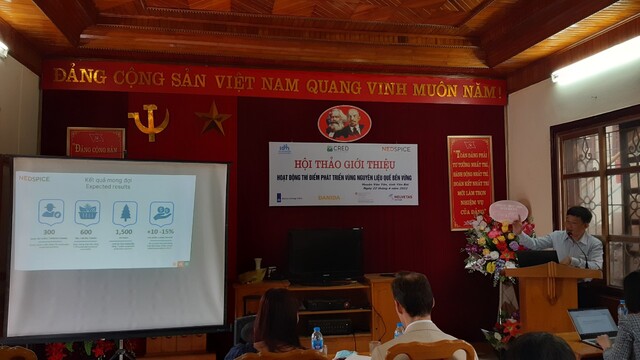
The event attracted the participation of 30 delegates from Van Yen District Forest Protection Department, Nedspice Group Company Limited, Que Lam Group – NedSpice’s partner, representatives of IDH, CRED, UEBT, People’s Committees of communes in NedSpice’s raw material area. Mr. Jos van Gulick, General Director of Nedspice Vietnam shared, “Destination markets are implementing ever more complex import restrictions, not only about quality and use of agrochemicals, but also about environment impact and social responsibility. Nedspice is a large company with resources to monitor all changes in regulations, we work together we will be able to manage this to ensure exporting great cassia products”.
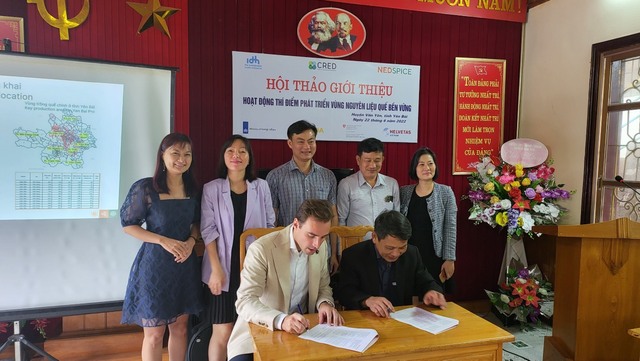
The workshop gave an overview of NedSpice’s business model as well as strategies for sustainable supply chain development through close relationships with farmers and other actors. In addition, the workshop also highlighted the support of the BioTrade project and IDH’s spice program for cinnamon businesses. At the same time, the workshop also introduced UEBT organization and the difference between UEBT, UEBT/RA standards compared to other sets of standards. At the end of the workshop, the Forest Protection Department stated that they will do everything possible to help NedSpice develop a sustainable cinnamon growing area and will create favorable conditions for the project to be implemented in Van Yen district as well as looking forward to continuing to support the project. They also want to receive the attention of IDH, CRED and BioTrade SECO in cinnamon development activities in the coming time.
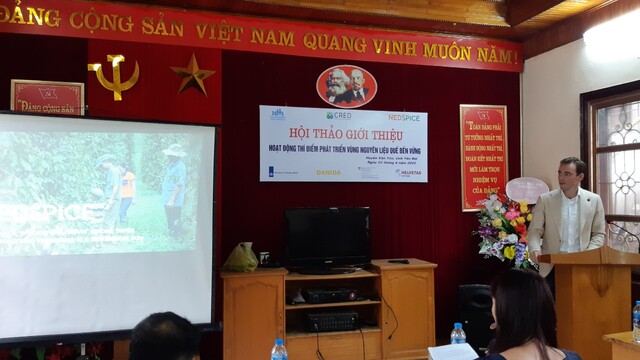
The Regional BioTrade Project – phase II (BioTrade SECO) is implemented by CRED and sponsored by the State Secretariat for Economic Affairs (SECO) with activities to support Vietnamese SMEs in developing trade towards exporting products of sustainable standards.




